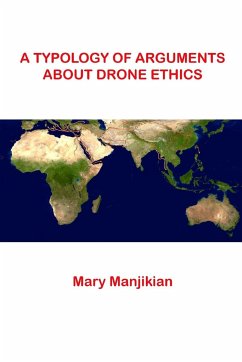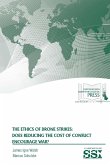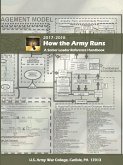In recent years, international nongovernmental organizations (NGOs) like Human Rights Watch and Amnesty International have described U.S.-led drone strikes in Pakistan, Syria, Afghanistan, and elsewhere as atrocities and even war crimes. Both the International Committee of the Red Cross and Human Rights Watch have asked whether the United States is violating the Law of Armed Conflict (LOAC), with Human Rights Watch suggesting that the United States should be prosecuted for its actions. At the same time, the International Committee for Robot Arms Control (ICRAC) has called for greater regulation of what they term "killer robots." How might military leaders best respond to these allegations? In this insightful analysis, Dr. Mary Manjikian offers a framework for understanding the different types of anti-drone arguments made by policymakers, NGOs, academics, and other states.








